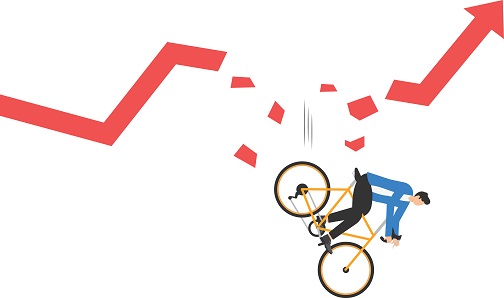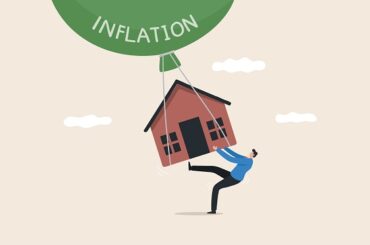Oh what a Circus! Oh what a Show! Philip J Milton & Company Plc has gone to Town! We were delighted to host so many of our clients, friends and staff at the celebrations at Trimstone on 20 September! Sadly we had picked the worst-weather day for ages and right after it was lovely…

The entertainment was enthralling, the food and company lovely and all our teams worked their socks-off (as well as beforehand) to help make sure all our guests had a wonderful time – as I trust we all did too – albeit being rather tired afterwards, especially after tidying-up ‘the morning after the night before’.

A big thank you to all those who could attend and also for the very kind comments shared too on what we are sure will be a day for everyone to remember for a long time to come. If you were able to be there, thank you for being part of helping to make it the success it was.
Conference season and what else?

The Labour Party conference has passed and Sir Keir has been distracted by a Trust (or not) over a donkey field. Will that still come to make an a** of him? Had it been in his parents’ names, there would have been no CGT on their death and ostensibly no IHT either… Rachel Reeves is not enjoying any positive forecast nor results (as business confidence in September is at record lows) and the Party is struggling with what they can say about filling the black hole they created. It won’t be easy and savers and investors particularly are likely to suffer.
As ever, though, be wary about what you do before the Budget – many foolish people rushed last time and once they tipped a few genies out onto the table, found they couldn’t put them back in the bottle again afterwards.
So what’s new? The biggest 10 US stocks now count for the highest ever recorded proportion of the whole of the US Market, at 78%. At the dot.com bubble peak, that was 74% and the Great Crash’s 75% in 1930. Tech now counts for 58% of the value of all global stocks, higher than the Dot.com peak where tech, telephony and media were involved (TMT). Curiously the latest Fund Manager survey noted the same percentage believes global equity markets are overvalued and the year-to-date hirings in the US are also down that same sum in the year…maybe a portent… Read all about ‘value’ below.
What I do want to say to our clients, however, is that they employ us to do the worrying for them so we structure and manage strategies to reflect our views and expectations already. We don’t write one thing here then do another. Of course, none of us would be insulated by some almighty upset which could even see the cash at your Building Society inaccessible but we do our absolute best and with underlying ‘value’ as the core component – not speculative, gambling-style momentum as it seems most investors hold – probably for most without them even realising that. We don’t chase dragons – it is real people’s real money which we look-after for them. Most of the assets we hold are way below their previous high points too and they generate a strong level of real income which should continue even in a fall-out in the US market. Indeed, our largest holding, a fund representing a mere 2% of our total client assets, still sits at a 51% discount to the underlying assets’ value for example.
Value will out

Yes, yes, many in the financial world will say ‘but didn’t you always know that?’ Well yes, of course but that’s not the point. It is an interesting but very disturbing fact that most investors don’t care about the value of what they buy. Indeed, as a market or commodity rises in price and potentially exponentially, all that happens is that it becomes chased even more as its popularity grows and attracting other speculators to join the party. Even take gold and silver at the moment. To many this news might be a revelation but of course it also puts to shame experts and analysts who instead try to justify excessive valuations (or under-valuations) in whatever latest asset class or market fulfils those criteria.
This is fine whilst the party continues with all the celebrating and toasting each other’s successful results but if or when it stops, ‘when’ always being the more likely outcome for extreme valuation disparities, what handle does anyone with the over-priced stuff put on the underlying ‘value’ which should be attributed to that asset? It also discredits these analysts’ views of valuations of the markets or whatever which try to justify extreme levels as well, as they count for nothing. Their view has to be based simply upon the anticipated flows of new money for an asset, a market etc, to chase prices higher still and which will fulfil its own reality as yet more money is thrown at something and there are few sellers.
The expression ‘value will out’ basically means that in the end, true value will reward (of course it won’t every time as it is not an exact science) but if you are buying something fundamentally under-priced, in the end the value will be rewarded (as we have been pleased to demonstrate myriad times with our selections). In this instance, if the market itself does not reflect that value by prices rising to levels where the assets should have been in the first instance as ‘fair’, then corporate action (such as a takeover) is more likely, as a predator, even ‘asset strippers’, snaffles the whole thing because then they enjoy all the revised value going forward.
Of course, the cynic would say that lowly-valued assets are all very well but you need someone else to buy them to push prices up. That is true – to some extent. However, in the end, if a market will not do that itself, then a corporate buyer will swoop or other corporate action (such as a company taking itself private – see below) will see others unlock that value.
We are value investors. However, there aren’t many of us ‘left’. We make a purchase and then a holding decision upon what we consider is fundamentally undervalued assets. These typically have traditional attributes like a good income being thrown-off naturally from their activities and assets worth more say than the share price, as examples.
Importantly, very importantly, at the moment, these also give us significant downside protection come any rout – which we still fear is becoming inevitable in the US. For those who are buying the ‘momentum’ over there, the same colossal flows of capital in can become colossal flows of capital out, triggering more selling and so it continues and then, there is no conveniently located valuation baseline to avert extreme upset as ‘value investors’ like us are only waiting in the wings when prices are significantly lower than now. Whilst our stance may not be so popular, it has been a great couple of years for value investors. However, we encourage all investors, especially those not with us, to be very, very wary of what they hold – or what ‘value’ they think they hold.
What is frightening, maybe, is that the majority of investors out there believes their advisers and them are investing in things which they think have good value and are likely to increase over time – not simply emotionally because more people will subscribe more money alone in the future, like a giant pyramid scheme (as in fact that’s what they have) and hence increasing the price as demand exceeds supply. That’s great till it stops and the flows reverse…
I am reminded too of the adage of ’how to boil a frog’. If you put him in cold water and gradually warm him he will boil and die whereas if it was hot he’d jump straight out. Sadly, presently the US market is boiling and the participants don’t realise that they are being boiled alive… they also don’t want to leave the party in the Penthouse suite despite the fire ravaging in the lower floors and cutting-off their exits.
How dangerous it is playing at the top of this Ponzi Scheme where the consensus view is that the new paradigms of valuation, etc are, well, the new normal – and despite history’s stark warnings. The speculative US tech-dominated index, the Nasdaq, fell 77% from the Dotcom peak. We did just fine in comparison – we had none (having trawled all strategies that April to sell anything with tech related to it and even funds which had over 25% in tech) and our ‘real’ assets actually generally went up as well as paying healthy income!
Unregulated investments and financial services

Why do people do it? Any upstanding firm would wish to be regulated both to demonstrate their integrity but also to ensure their investors have protection if something goes wrong. Yes, some of ‘these’ may be paying better rates for your deposits (because they are not incurring the burden of regulation) but is losing all your money a good risk to take for something here that shouldn’t happen (ie it is not like buying a speculative share which could go bust)?
So Wellesley, promoted heavily on the telly, went bust and there is a big shortfall from the loans realised, the development property which was being financed and the deposits which savers sent to them. Some have lost the lot and no, there is no compensation as it was not regulated and the risk warnings about investing in a private, unregulated company involved with property development, one of the riskiest of all ventures, were made very clear. The FCA has just completed its investigations and that is that.
Pleasingly most charlatans and fraudsters are gone but what about peer-to-peer lenders or crypto currency? What about property loans and ‘investments’ still pushed on the internet? Frankly it is not worth the risk and most (if not all) of the opportunities you pursue are available through legitimate businesses and funds on mainstream markets, like the Stock Exchange anyway.
People don’t seem to realise that things from the safest ever to the most wildly speculative are all accessible – you pick what you want or more wisely seek a regulated independent adviser’s wise counsel and care. It doesn’t even have to cost you anything for a conversation or even guidance and you may realise the extent of your ignorance in the field then… ahem! Wisdom is often about realising and recognising that you don’t know as much as you might think you know about a specialist field… maybe that chap with 40 years’ experience might be reasonable at his job after all..!
And when the Regulator notes ‘Watchdog to exempt cryptocurrency groups from some rules’ one has to be very worried as this non-asset moves closer to apparent legitimisation… is the writing on the wall? Apparently ‘cryptoasset firms do not typically pose the same level of systematic risk’. I wish we fully regulated businesses could be exempt from some rules perhaps…
Good news/bad news

Man Group secures a broker upgrade and the shares bounce 5%. They’ve been very oversold anyway and we have been adding at these low levels. Tate & Lyle, a recent addition, falls a further 10% to the lowest levels since 2009 on reduced sales, weak sugar prices and underlying demand. The income yield is now nearly 5% and the shares are a takeover target.
Frustratingly too, as we like the fund but Petershill gives up on the market and decides to delist, giving shareholders an instant 35% uplift in the last share price. We can hardly complain but we lose future income and we have had great returns – we only bought when the stock was depressed at a deep discount (readers will remember us noting this) and not at its start.
Put into context, that is a special £680,000 bonus for our clients – an extra 0.25% across our funds managed for doing nothing, on one day, simply buying an Investment Trust at a discount to the underlying net asset value and waiting and nothing at all to do with the underlying assets or markets. That also contextualises the principle of ‘what something costs’ and a ‘cheap’ fund elsewhere – which will never yield any such bonuses because they don’t operate like an Investment Trust! Did you think that paying say 0.15% for a no-frills tracker was cheaper than being paid to own a fund, as we are here and have been on several similar reversion-to-asset-value plays?
Aberdeen Diversified Income and Growth has also announced exclusive talks to sell its private market assets too (albeit at a bulk discount) so that should be constructive news for the wind down and a further bonus for investors.
Untrue potential

Readers may recall our amazement at the 8% payment which True Potential offered financial advisory firms to transfer their client banks across to them. This had to entail a disposal of whatever the clients already owned to buy into the very limited, ‘restricted’ range of True Potential-linked unitised funds. The offer is now different but say an adviser with an unremarkable £50million in client funds would have been paid a colossal £4million and hence the enthusiasm of the encouragement – and for many a great retirement cheque. I could have walked away with £22million – wow!
However, whilst we tried to advise the odd few enquirer clients we had and did our best to deter them, clearly significant numbers elsewhere were bamboozled into going across and in the Firm’s last accounts, a whopping £95.5million provision was made to compensate investors for the ‘estimated position they would have been in had the transfer of assets not taken place’.
A further £4.9million was set aside too to cover the failure to undertake client reviews. We were brave enough to call it an ‘8% commission’ at the time – when commission to sell investment products was banned in 2013. I wonder just how many people were encouraged by their adviser to do what was in the adviser’s best interests – hmmm.
Schroders/Lloyds

The much-feted joint deal to manage capital for all their clients is coming to an end. It had grand designs but that can happen but I wonder what will arise for clients who signed-up to benefit from the joint deal? Will they be orphaned or will they all need to learn some new processes and staff or see their assets change to satisfy what we assume will be Lloyds taking them all again?
Meantime, we are still here, doing the same things, looking after our clients with the same advisers and service team just like we have for the decades, even if naturally the staff may have changed over that time but hey, it’s the same main investment manager after 40 years so we must be doing something right!
Brokers’ notes

Is there any point with ‘brokers’ notes’? I don’t say this to be disparaging to brokers and analysts generally but so often, when new price targets for a stock are announced the share price can be wildly awry from that and the reaction on the day muted, to say the least. Perhaps if the shares don’t rise (if say the target is well above the current level) it shows the market’s respect (or not) for the brokerage itself rather than the company!
However, last Monday Capita enjoyed a ‘buy’ rerating, rising 22% as new research suggested the shares should hit £9. Well, even after the gain (which I am pleased to report we enjoyed (even if for some clients it is still a recovery!), that means a threefold further increase. We shall have to see!
Maxims – being a better investor – from the ‘Basil of Barnstaple’

8. Do you trust your regulated independent financial adviser? That’s not necessarily to not run-off with your money (as protections abound!) but to do the very best thing for you and not to line their own pockets at your expense?
My best wishes
Philip J Milton DipFS CFPCM Chartered MCSI FPFS FCIB
Chartered Wealth Manager
Fellow Of The Personal Finance Society, Fellow Of The Chartered Institute Of Bankers





